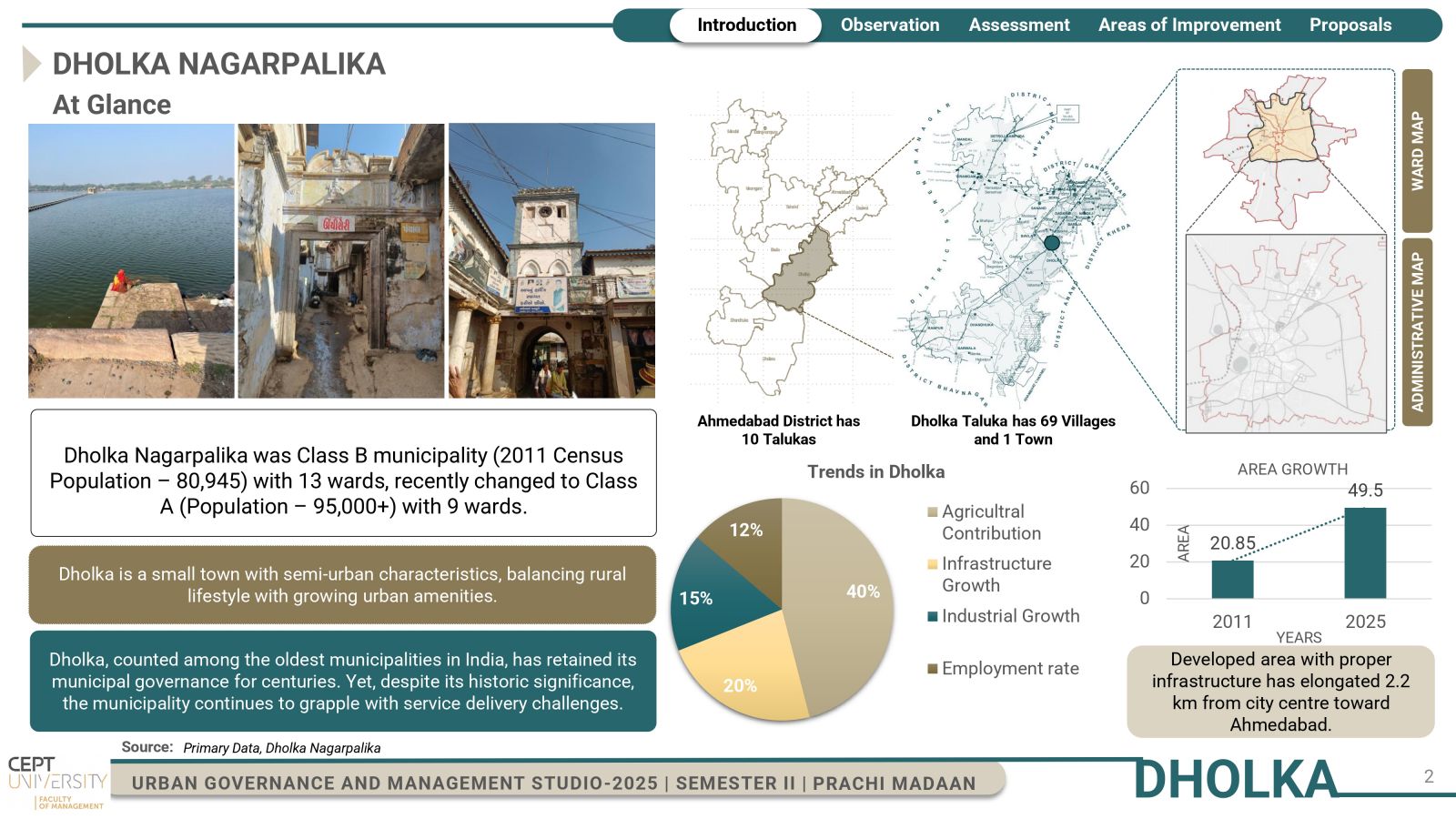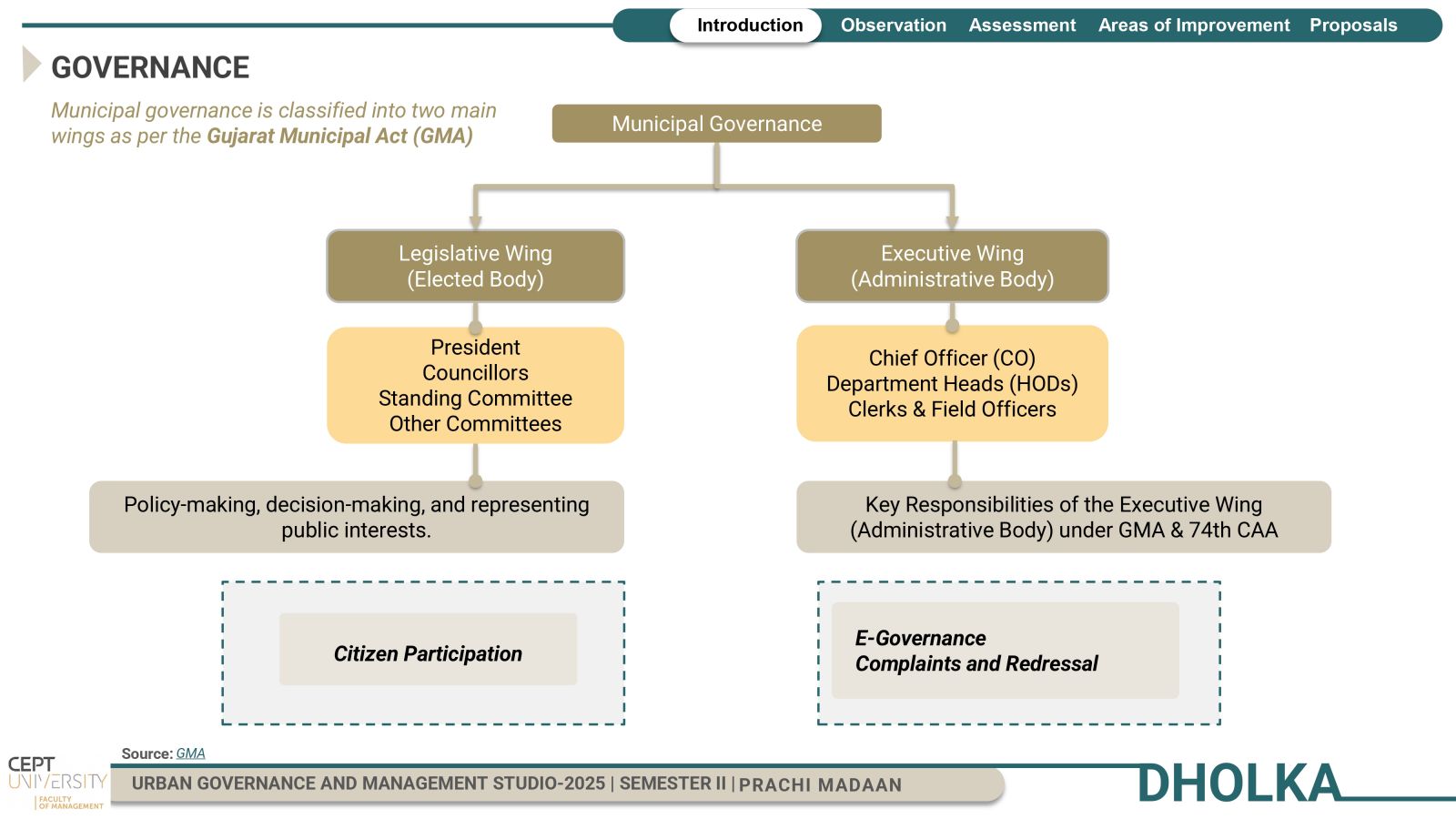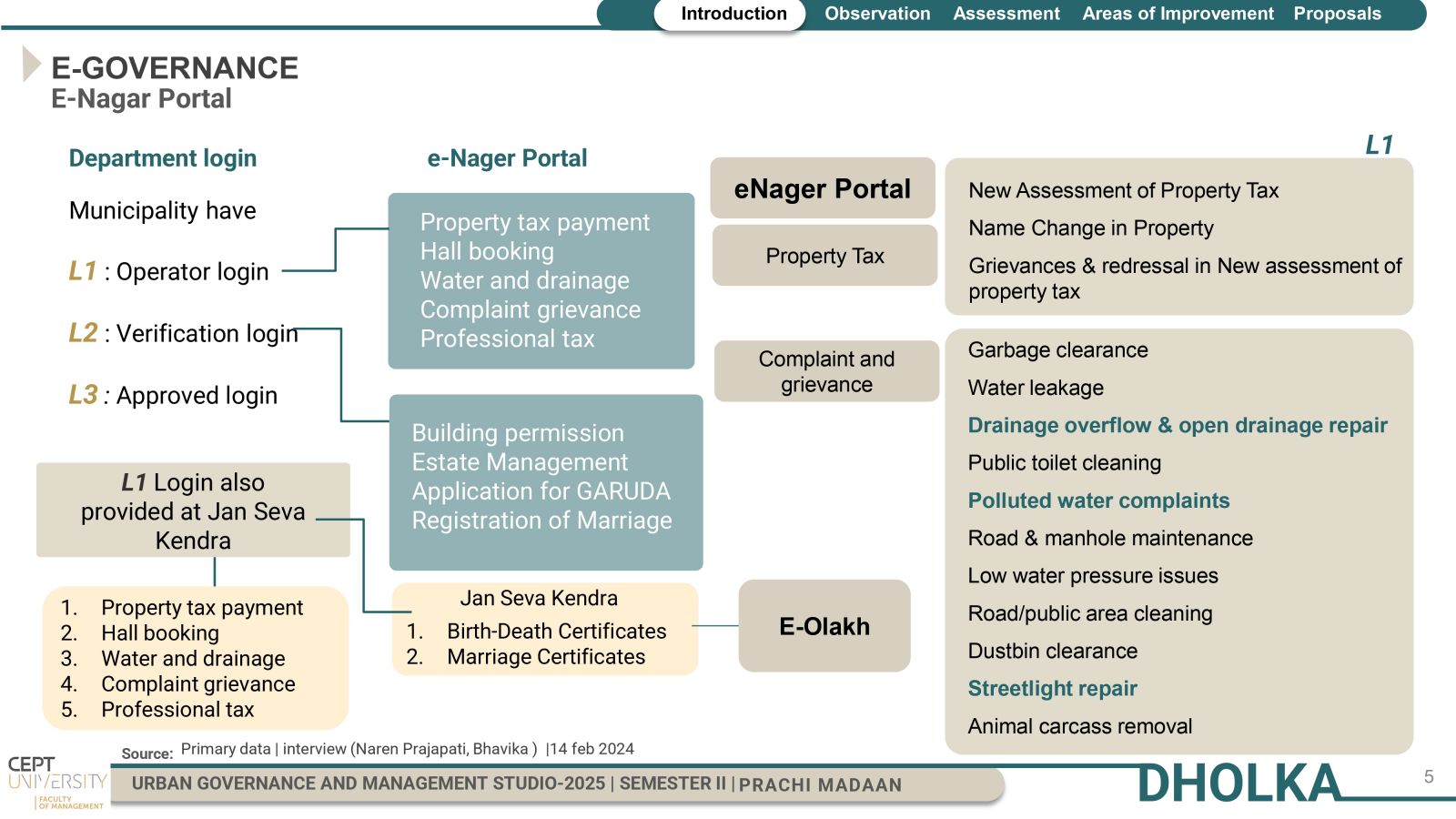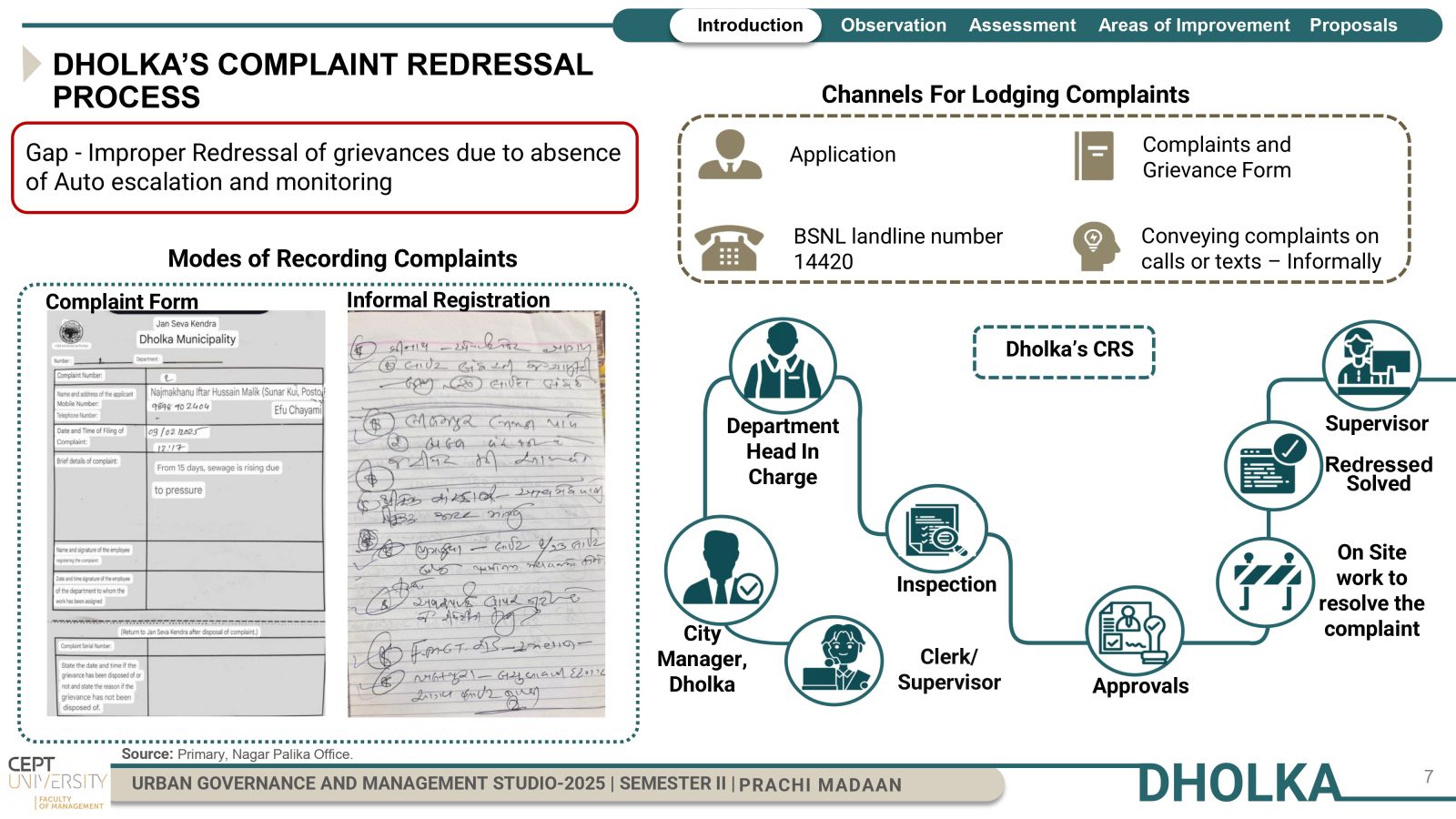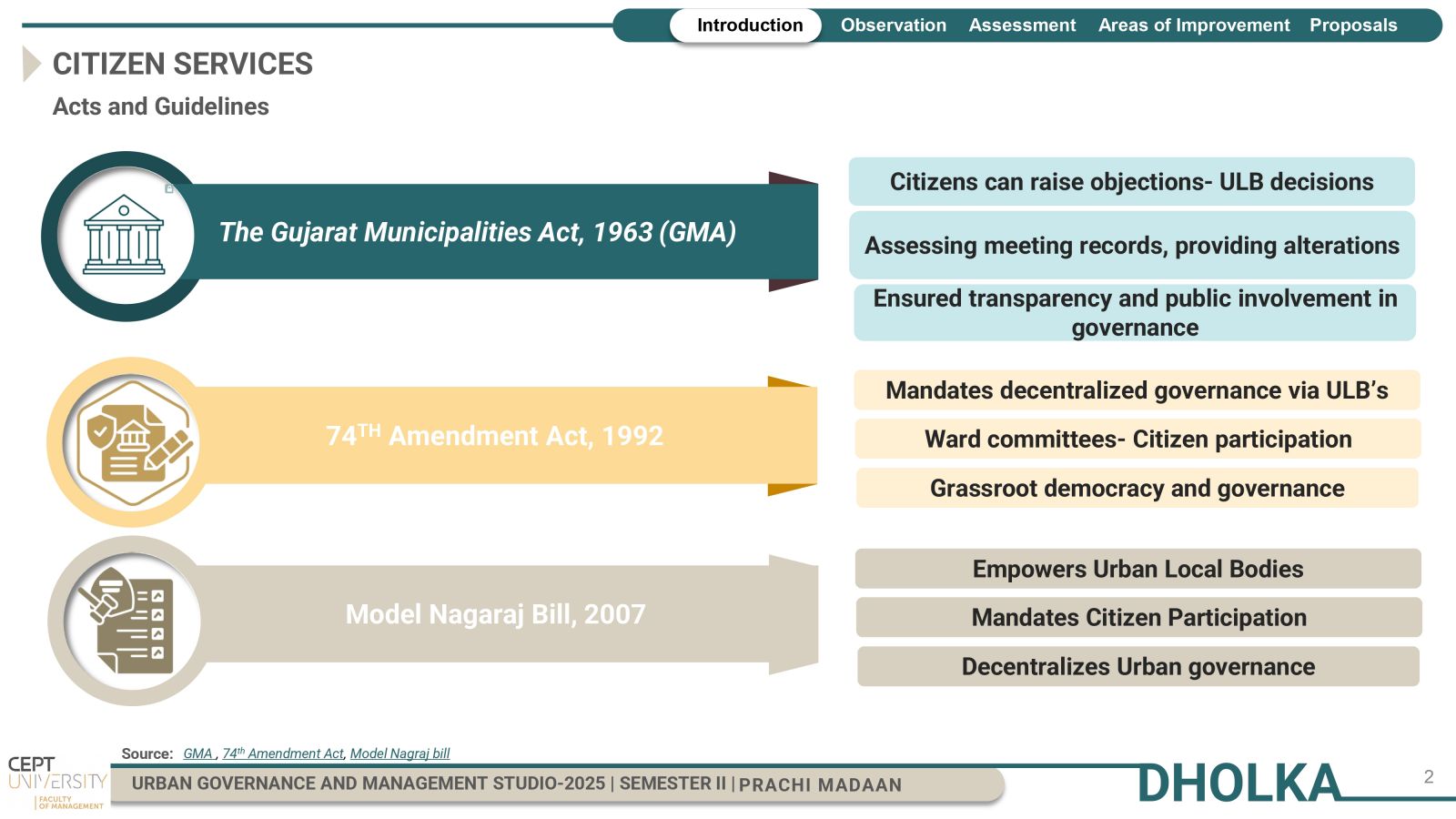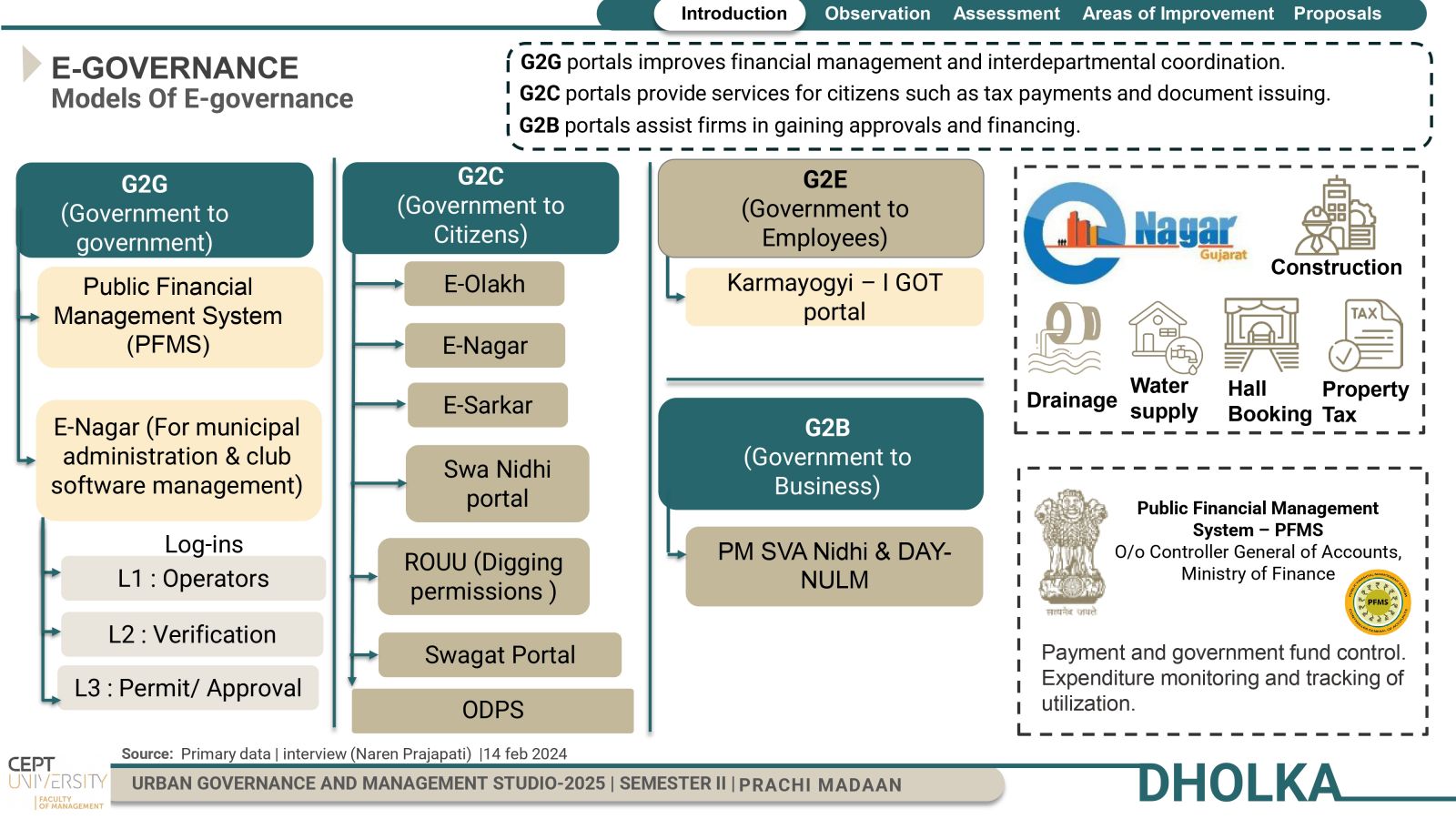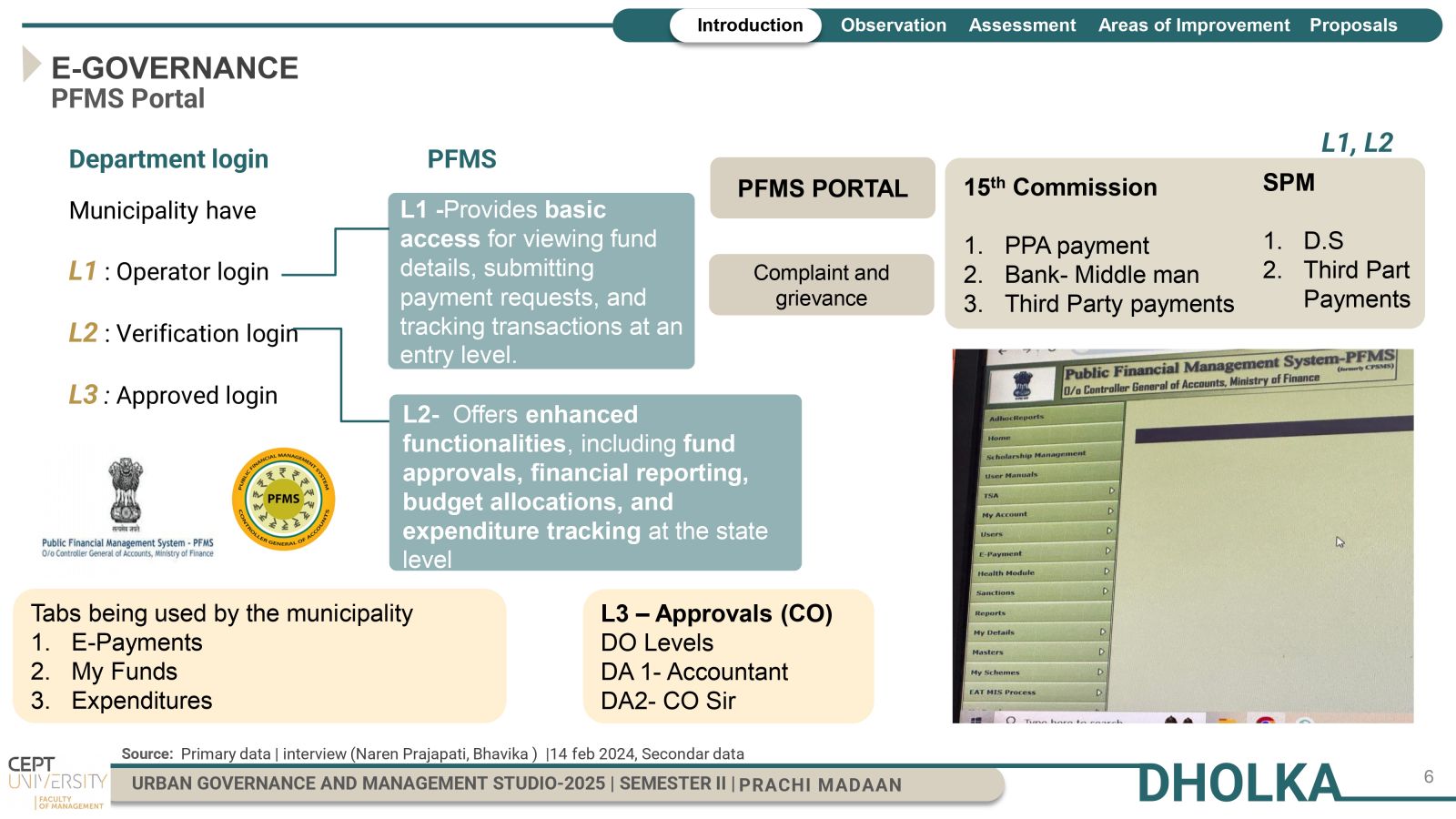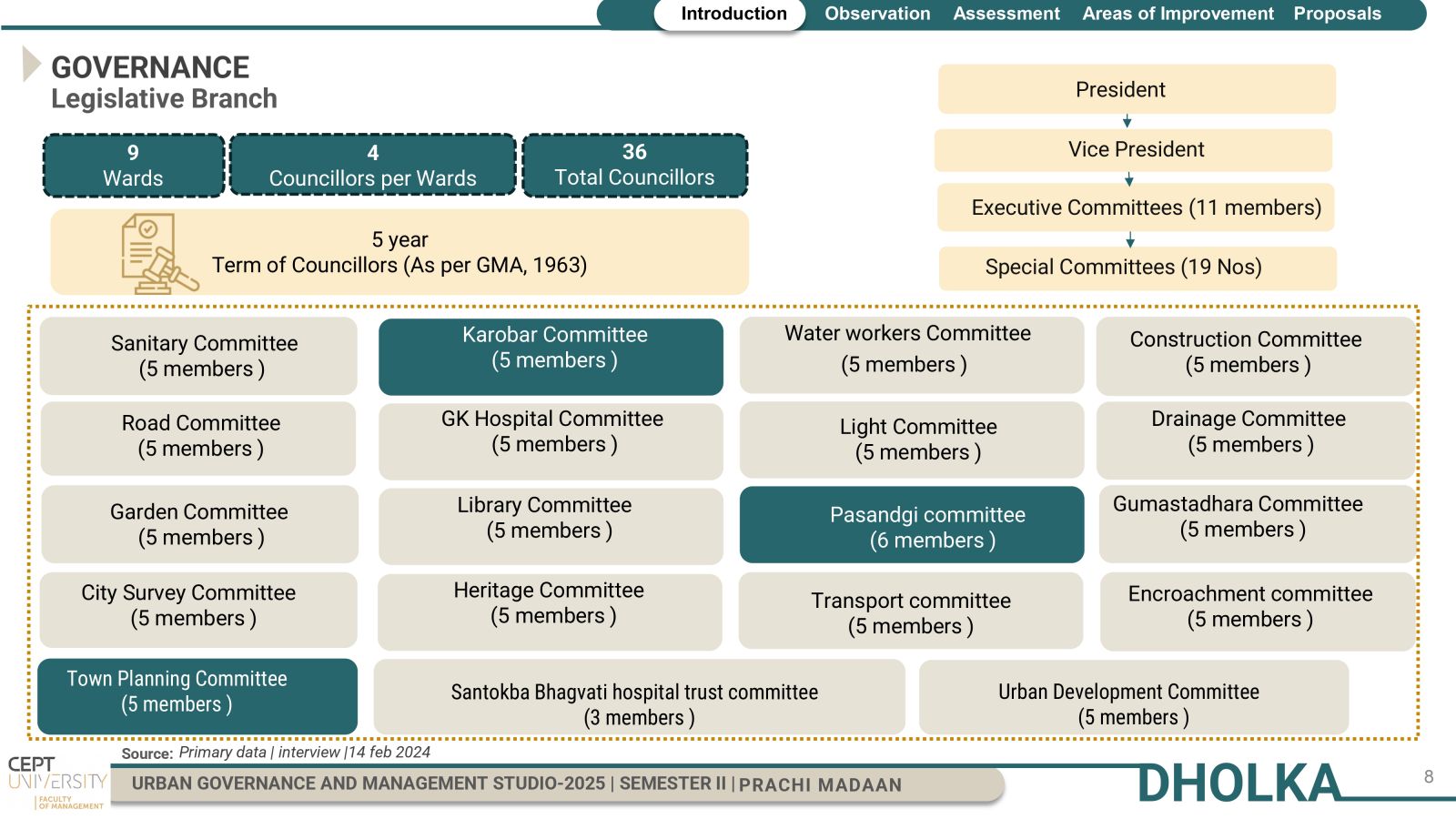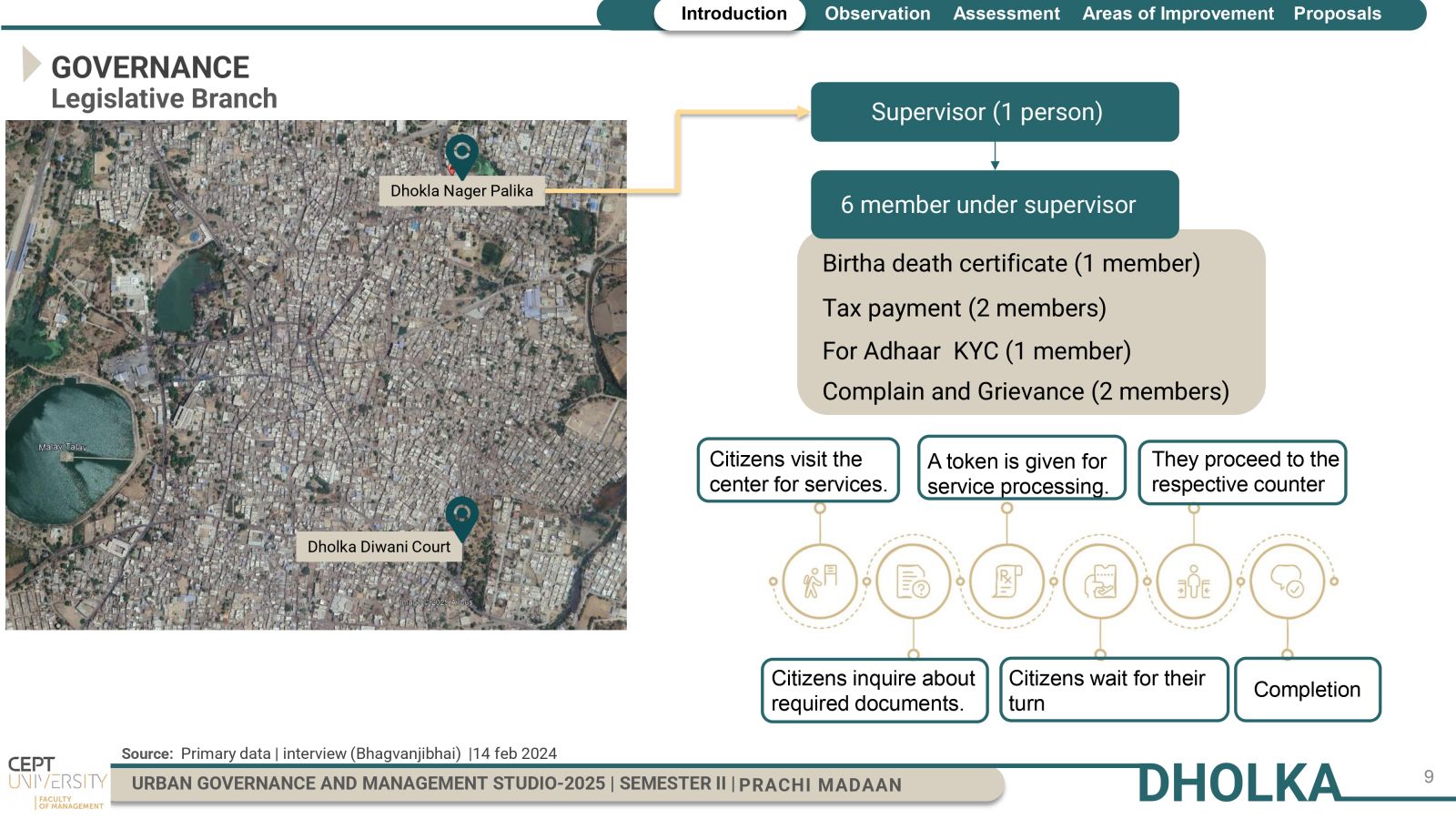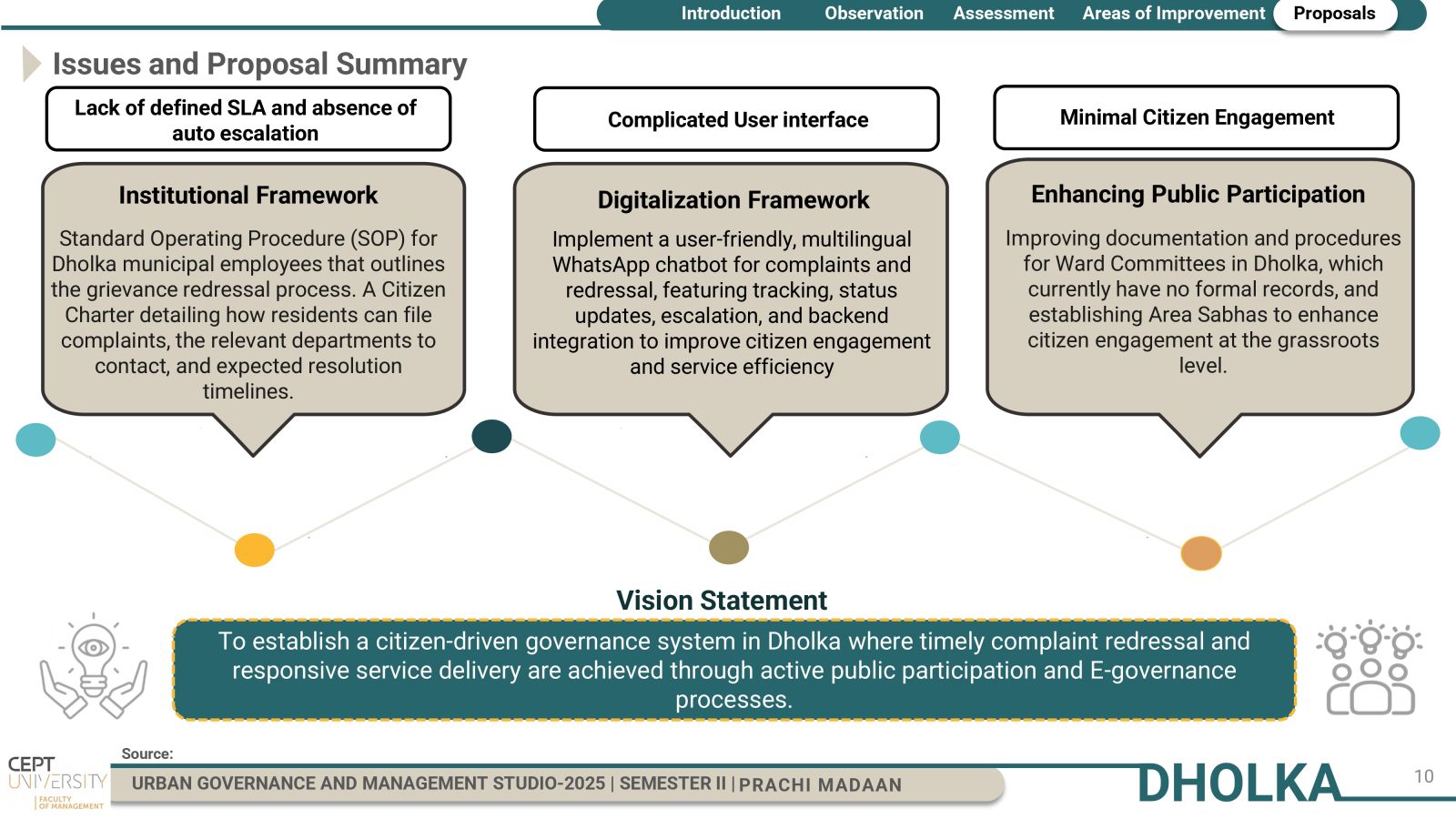Your browser is out-of-date!
For a richer surfing experience on our website, please update your browser. Update my browser now!
For a richer surfing experience on our website, please update your browser. Update my browser now!
This studio extensively studied Dholka Nagarpalika’s urban governance framework and service delivery ecosystem, examining institutional arrangements, operational practices, and citizen participation processes. Field assessments, stakeholder consultations, and e-governance platform reviews revealed procedural ambiguities, a fragmented grievance redressal mechanism, and inactive participatory forums. Though multifunctional, systems like E-Nagar and PFMS suffered from being ‘jack of all trades, master of none’ — offering numerous services without operational rigor. Major gaps included undefined service timelines, absent escalation protocols, and informal committee practices. The studio proposed codified grievance management, enhanced digital systems, and revived participatory structures to strengthen transparent, citizen-centric urban governance.
